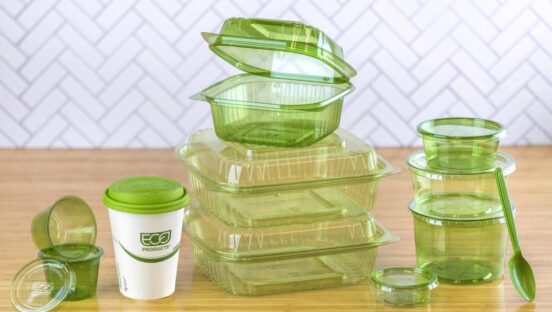Eco-Products announced an innovative new product line designed to make it easier for consumers, composters, and the entire foodservice value chain to differentiate between compostable and non-compostable products.
All cups, lids, containers and cutlery in the new Veridian line feature the word “Compostable,” display the BPI Certification Mark signifying that the material is compostable, and include green or brown identification elements like tinting and striping that further help distinguish them from their non-compostable counterparts.
“Consistent on-item labeling is essential to giving foodservice operators, their customers and composters the ability to quickly and easily identify products as compostable,” says Wendell Simonson, Director of Marketing at Eco-Products. “That’s what Veridian is all about.”
Contamination from non-compostable products continues to be the biggest challenge facing composters accepting compostable products, and it is significantly impacting the growth of composting infrastructure designed to process food scraps and packaging together. The result is more food sent to landfills, which is a well-established driver of climate change.
The Veridian line contains over 50 items across a wide range of categories including cold cups and lids, hot cups and lids, clamshells, deli containers, portion cups, salad bowls and cutlery. All of the items are designed to meet new labeling rules in Washington state and Colorado that require the use of the word “Compostable,” a third-party certification mark, and the combination of color and design elements that vary by state.
The laws were created to address contamination challenges and make compostable foodservice products more readily and easily identifiable. Last fall, Eco-Products launched the “CIRC” Program — Controls Intended to Remove Contamination — an open source, systems approach to contamination mitigation for the foodservice industry.
“Composters have an extremely limited ability to deal with contamination once it gets to their facilities,” Simonson says. “That means we need to do everything possible to keep non-compostable products out of organics streams, and consistent on-item labeling is a foundational piece of that effort.”



